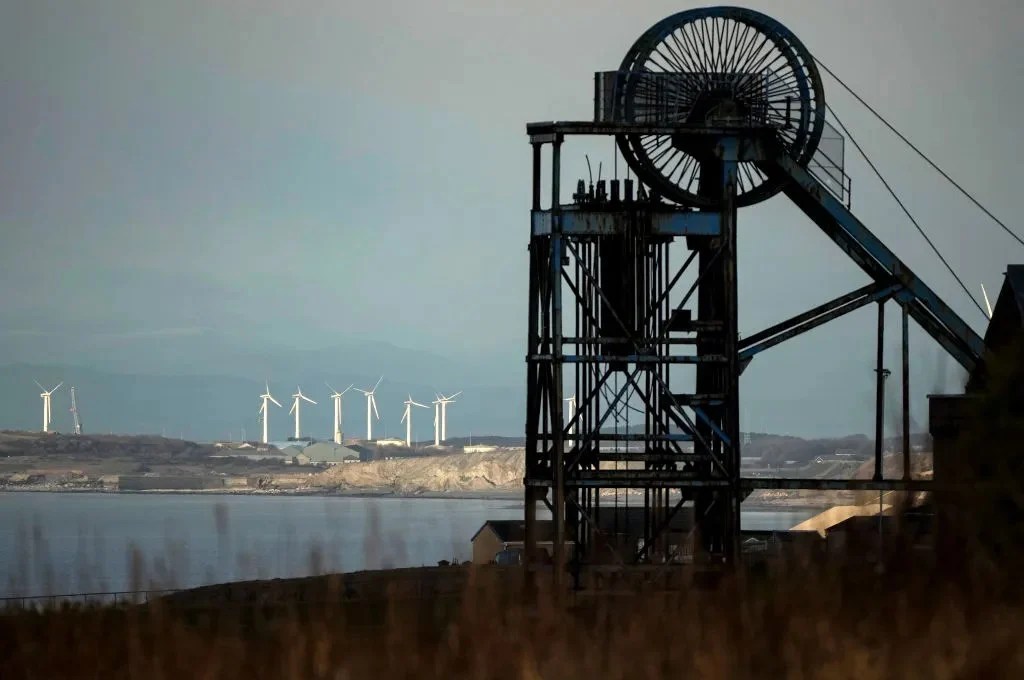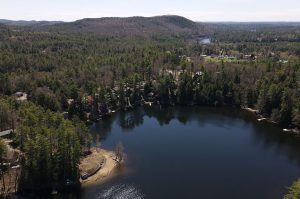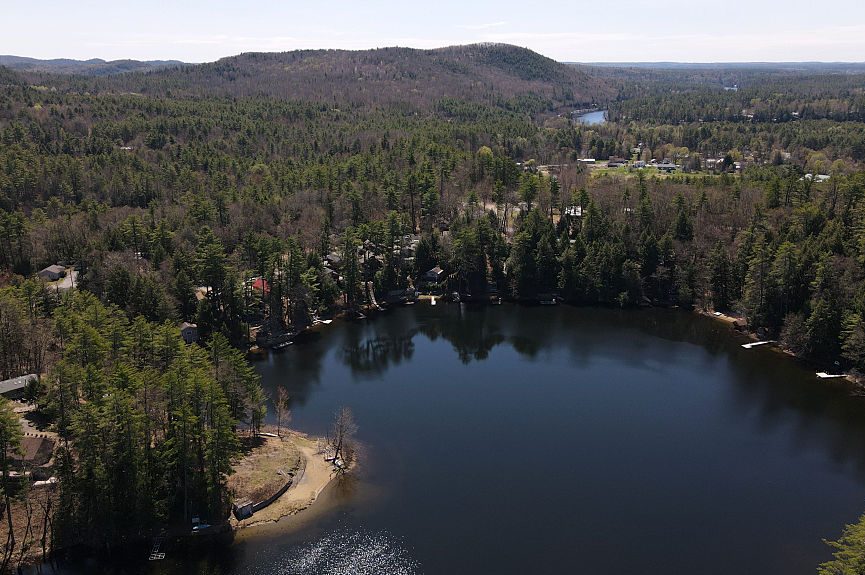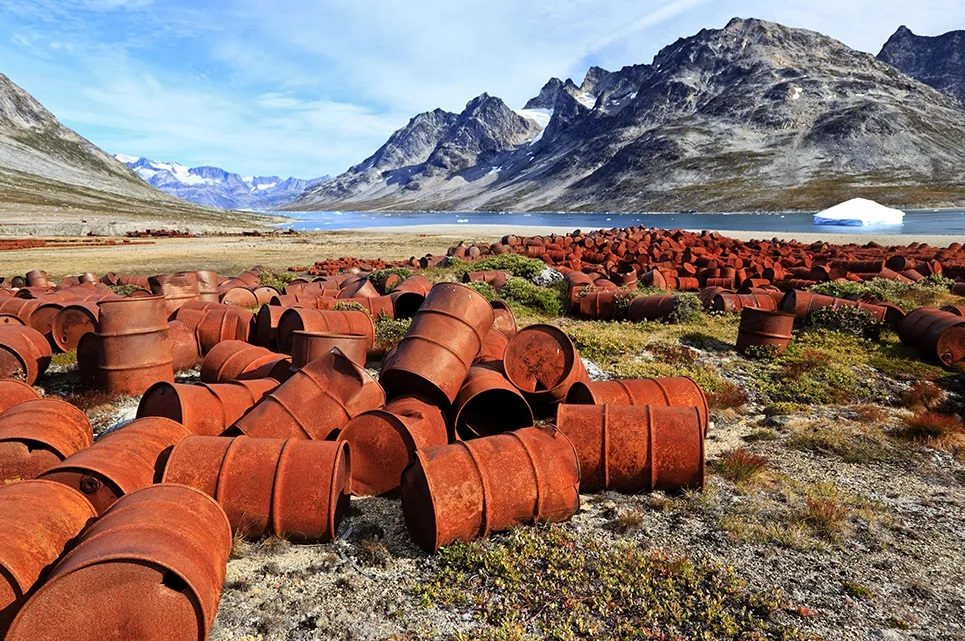Why hasn’t an anti-technology movement emerged? It seems to me that we face two overlapping crises. One is obviously climate change. AI, if it doesn’t wipe us out, is supposed to help us fix that. But artificial intelligence leads us to the other crisis, one that is harder to name: let’s call it alienation-through-technology. Are they, at root, one and the same?
Imagine that Elon Musk solves climate change next month. He develops a totally clean energy source so everything can continue much as we are with no need for apocalyptic anxiety. It would be wonderful news, I suppose. But part of me would feel a bit miffed. Because there are lots of other things wrong with our tech-driven civilization, and suddenly the pressure would be off us to fix them. Climate change is useful in a way, because it tells us that there is something fundamentally wrong with the way we live. My hope is that this realization will spur us on to more authentic forms of human culture. If we’re able to fix the climate with new technology, the world we save will be ruled in perpetuity by the technocrats and their robot spawn.
Mainstream environmentalism tends to sideline the desire for more authentic forms of human culture. All that matters is saving the planet, proponents say, so let’s not be distracted by questions of culture and tradition; those fringe environmentalists who insist we need to lower our standards of living are really just nostalgic for a low-tech world.
That contention isn’t quite true. Since about the 1780s, the West has contained a movement that has reacted against industrial civilization, and called for a return to simplicity. Romanticism, basically. It was never very coherent — including neo-pagan poets, socialists, Christians, and wallpaper manufacturers. Blake, Wordsworth, Carlyle, Ruskin, Morris. Bearded Victorian prophets, most of them. Further afield: Thoreau, Whitman. Tolstoy, sort of.
For the Romantics, it was the vaguer, cultural thing that comes first: industrial civilization is making us miserable, less than human — oh, and by the way, all that factory smoke might not be so great in the long run. Yes, Wordsworth was opposed to industrial civilization because it threatened the pretty views of the Lake District. But it bothered him even more that it ripped up traditional human bonds, that it produced alienated individuals. This is also what motivated Carlyle. He was horrified at the reshaping of society by the “cash-nexus” and rootless individualism. For Ruskin and Morris, too, saving the natural world was less important than saving the soul.
In the mid-twentieth century, this tradition stalled. In a way, D.H. Lawrence was the last of these back-to-nature prophets, but he was too edgy and angry to keep the tradition going. Or maybe Gandhi was the last of them (he was greatly influenced by Tolstoy as well as by Hindu tradition). But by then “back to nature” sounded a more questionable ideal; the desire for a purer, simpler culture felt different after the Nazis.
While the cultural case against industrial modernity hardly diminished, the Cold War hindered our ability to ask those questions. Capitalist modernity, we all agreed, was the least worst option, even if it does alienate us from meaning and from each other, even if it idolizes the hollow pomp of Hollywood.
Then came the hippie movement and modern environmentalism. When the latter began to grow in the 1970s, it was largely framed as a practical, scientific matter, cut off from the wider issue of the dehumanizing effects of modern culture. This is understandable: urgent practical problems needed addressing, such as the poisoning of the soil. It was natural enough to appeal to the authority of science, and leave aside the huge, vague and politically contentious question of what counts as dehumanizing culture.
Of course, parts of environmentalism did have a cultural side, in which non-Western spirituality — or rather a shallow hippie take on such spirituality — loomed large. With the collapse of the Soviet Union, radical greenery took up the anti-capitalist cause in its shallowest form. Since then, the technical form of environmentalism has become mainstream, a staple of public policy. The movement is more sciency and more detached from genuine questions of cultural authenticity. But in the last decade or so, some environmentalists have begun to ponder whether this is a good thing.
Even if you steer clear of eco-lit, you’ll have heard of George Monbiot, the Guardian’s man on the ground. In a TED talk four years ago, Monbiot argued that humans need big stories. “When we want to make sense of something, the sense we seek is not scientific sense but narrative fidelity.” Whatever you think of Monbiot and some of his stranger pronouncements, he’s right on this. What we need is a new version of the classic human story of restoration. Monbiot explained:
Disorder afflicts the land! Caused by the powerful and nefarious forces of people who say there’s no such thing as society, who tell us that our highest purpose in life is to fight like stray dogs over a dustbin. But the heroes of the story — us — will revolt against this disorder. We will fight those nefarious forces by building rich, engaging, inclusive and generous communities, and, in doing so, we will restore harmony to the land.
This is less of a story about the environment and more of a story about us and the world we’ve created. Of course, when Monbiot fleshes this out, he does so in a secular leftish way, casting neoliberal individualism as the enemy that blocks our natural altruism. He steers clear of religion, using much of the same rhetoric as atheist humanists. But in some ways he goes deeper than the average humanist by criticizing our culture. He extensively ponders the rise of loneliness, and dares to make a few critical comments about popular culture. “Consumerism, television, cars, and the fetishization of celebrities are also likely to reduce our mental or physical activity and undermine our self-reliance.”
Monbiot has written extensively on the “epidemic of loneliness.” He has realized that most people view environmentalism as having little importance to their daily lives, so there is a need for a wider, more human message in which environmentalism can sit. In effect, then, Monbiot has tried to return to the Romantic emphasis on cultural alienation, and even to place this before the global warming stuff. This agenda — repairing human culture, for goodness’ sake — is so huge that Monbiot looks little in it. One feels that something more dramatically “other” is needed, a voice that rages and soars, not this conventional secular leftish voice tutting at consumerism.
One also senses that Monbiot’s true passion is the preservation of the natural world, and that he sees human culture as a means to this end. This is clear from his most recent book, Regenesis, which argues for the transformation of food production. He insists that we abolish the farm and radically affirm lab-grown meat. Genetically-modified 3D-printed bacteria steaks, he thinks, will save us.
There are those who have gone further than Monbiot. After 20 years as a campaigner, Paul Kingsnorth broke with environmental orthodoxy. His revolt can be summed up thus: if staying positive about the future of the planet involves praising bacteria burgers, he’d rather despair. In 2009, he wrote a manifesto with his friend Dougald Hine. It argued that there was no technological fix for climate change, because climate change isn’t really the problem: “We do not believe that everything will be fine. We are not even sure, based on current definitions of progress and improvement, that we want it to be.”
Environmentalists, he says, “decided to get ‘serious,’ so as to be listened to in the corridors of power. They started wearing suits and pretending to be economists and speaking the language of business and science.” This had benefits, he argued, but “may also have doomed the greens in the longer term, for now they find themselves caught in a narrative of other people’s making… its advocates now find themselves unable to do anything but agree about which machines they would prefer to use to power an ever-growing industrial economy… [They get] called naive idealists if they ask whether planning for a future much like the present is really such a good idea.”
In other words: let us not be ashamed of our desire to go back to nature, however incoherent it is. As a novelist and poet as well as an environmentalist, Kingsnorth believes in the importance of unresolvable questions. One of his favorite writers is R.S. Thomas, the craggy, Welsh poet and priest, who lambasted the “Machine” of industrial civilization. Like the Romantics, he put the emphasis on its soul-destroying power, its trashing of old human bonds. We can’t reprogram this Machine, Kingsnorth has said. It “will run on until it runs out.”
Kingsnorth lives on a smallholding in Ireland, determinedly modeling the sort of dissent he advocates, and to go on pondering what sort of hope might be left. “What might save us, in the end, will not be a new economic arrangement or a new politics or another revolution or a series of wonder technologies, but our own inner wildness, pushed under so hard and for so long that it finally bursts to the surface again, hungry for what it has lost.”
Two years ago Kingsnorth converted to Christianity. Eastern Orthodoxy, in fact. His is a very different environmentalism to the firmly secular kind we’re used to. But perhaps in Kingsnorth we find a hint of restorationism. Back when we were a more Christian country, pornography was talked of as “polluting” our culture. Nowadays it’s real pollution that we care about. But who says that it’s only test-tube-tangible threats to humanity that are fully real? Maybe it makes sense to say that dehumanizing culture pollutes us as much as toxic gases. Yes, it’s hard to agree on what “dehumanizing” means, but let’s not pretend that the question can be dodged.
This article was originally published on The Spectator’s UK website.

























